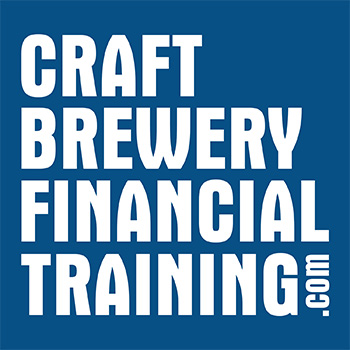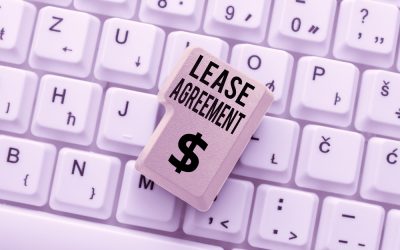 Top 5 Reasons Crafts are Turning to ESOPs
Top 5 Reasons Crafts are Turning to ESOPs
“It is in your moments of decision that your destiny is shaped.” Tony Robbins
How cool would it be if every employee in your brewery was also an owner?
Craft breweries are all about collaboration, camaraderie, and employee-empowerment. Employee ownership may be a natural evolution in craft beer culture.
An ESOP, or Employee Stock Ownership Plan, is one method to provide employee ownership. Breweries such as New Belgium, Harpoon and Odell Brewing Company are employee-owned.
Why did they choose an ESOP? How did they do it? Does an ESOP make sense for your brewery?
In this article, we’ll learn the Top 5 Reasons Crafts are Turning to ESOPs. We’ll also hear directly from Wynne Odell, from Odell Brewing Company on why they wanted an employee-owned company.
- The Top 5 Reasons Crafts are Turning to ESOPs
- Why Odell Brewing Company chose employee-ownership
- A Craft Beer Story: Is an ESOP right for you?
The Top 5 Reasons Crafts are Turning to ESOPs
Prairie Capital Advisors provides ESOP advisory services to craft breweries. Based on their experience working with clients, they put together a list of the top reasons crafts are turning to ESOPs.
- Maintain the Craft Beer Culture
- Maintain Independence – the ability to sell without selling out
- Create options for partial liquidation
- Act now: Take advantage of a strong market
- Attract and retain the best talent
Maintain the Craft Beer Culture. Employee passion and commitment to the beer and the brewery is usually very strong. Employees love working for the brewery and love the work that they do.
The key with an ESOP is to show employees how to be employee-owners. This requires financial training, business literacy training and teaching people to think like owners. Do this right and you’ll create a supercharged team that will give you a huge competitive advantage in the market.
Maintain Independence. Selling out to the big boys – Anheuser Busch and the like – might provide the biggest pay day, but it damages the perception of the brand. An ESOP provides owners the opportunity to cash out, while keeping the brewery independent.
Options for Partial Liquidation. In a situation with multiple owners, the goals objectives may be different. One owner might want to sell, while another wants to stay in. Likewise, an owner may want to take a partial liquidation (only sell some of their equity). ESOPs allow for partial sales and provide options to meet the differing requirements of owners.
Act Now. There is obviously a strong market for craft breweries. Valuations are solid, and the current environment provides an opportunity to create liquidity and remain independent. Who knows how long this will last. The time to explore an ESOP is now.
Attract and Retain the Best Talent. Breweries provide employees with free beer, t-shirts, and a casual working environment. All helpful things to keep people happy and coming to work every day. However, imagine the power of employee-ownership when recruiting and retaining the best talent. An ESOP gives employees a stake in the outcome of the brewery.
Evaluate these reasons to look at an ESOP and determine if they make sense for your brewery. Read Prairie’s analysis of the Top 5 Reasons Crafts are Turning to ESOPs. While there are many benefits to and ESOP, there are lots of details to consider.
Why Odell chose employee-ownership
Odell Brewing Company sold 120,000 BBLs in 2017 and projects sales of 126,000 BBLs in 2018. They have 140 employees, and partner with 65 distributors in 15 states. They have been in an ESOP for two years.
According to Wynne Odell, one of the breweries founders, “we have always been a managed growth, paced company.”
Odell decided to turn to an ESOP for three main reasons:
- Maintain cultural and business legacy
- Remain independent
- Financial stability: Loans and company cash flow only goes so far
Odell worked with Prairie capital to create a deal that accomplished these goals. The process took two years and there were lots of voices involved.
The structure of the deal looked like this: They sold 51% of the equity to their management team, 19% to the ESOP and retained 10% each for founders.
This setup allowed them to liquidate a large portion of their ownership, while still retaining an equity position in the company. In some ways, this provides for the best of both worlds: employees get ownership, while the founders get cash and retain a stake in the brewery.
A Craft Beer Story – Is an ESOP right for you?
An ESOP can provide a number of great benefits for owners and employees. However, they are not a good fit for every brewery.
According to Prairie Capital, ESOPs work best when breweries have these five characteristics:
- Dedicated management team
- Good operating model and market position
- Stable or growing margins and cash flows
- Strong balance sheet
- Excellent financial management and controls
A first step in evaluating an ESOP is to do a feasibility study. This helps determine if the brewery environment is right for an ESOP.
For example, is the sale price / value reasonable compared to seller’s expectations? Can the brewery handle the cash flow needed to cover the payments on the purchase?
Wrap Up + Action Items
Craft breweries believe in collaboration over competition, and employee-empowerment over a top-down management structure. An ESOP may be a natural evolution in craft beer culture.
Do the research for yourself to determine if an ESOP makes sense for your brewery. Download Prairie capital’s two-page report: Top 5 Reasons Craft Brewers are Turning to ESOPs. Take a read through their post, a Craft Beer Story, to learn more details about ESOPs.
There’s lots to learn and many factors to consider with an ESOP. But in the final analysis, ask yourself this question: How cool would it be if every employee in your brewery was an owner?





